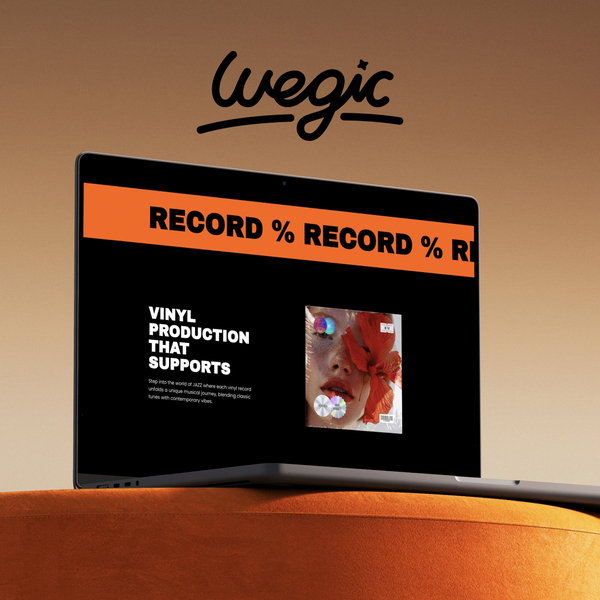Designer Website Solutions
How Designer Website Works
Designer Website
In today’s digital age, having a strong online presence is crucial for businesses and individuals alike. One of the most effective ways to showcase your work and attract potential clients is through a website portfolio. However, creating a website portfolio can be a daunting task, especially if you don’t have any design or coding experience.

What Is Designer Website?
Designer Website
Fortunately, there are numerous website builders available that cater specifically to small businesses, offering easy-to-use tools and templates to help you create a beautiful and functional website in no time. In this article, we’ll explore some of the best small business website builders currently on the market.
1. Wix
Wix is one of the most popular website builders for small businesses, thanks to its drag-and-drop interface and customizable templates. With Wix, you can choose from hundreds of professionally designed templates and easily customize them to fit your brand. The platform also offers a variety of tools and features, such as e-commerce capabilities, social media integration, and SEO optimization.
One of the standout features of Wix is its App Market, which allows you to add additional functionality to your website, such as online booking, email marketing, and live chat support. Additionally, Wix provides reliable hosting services and 24/7 customer support to ensure that your website is always up and running smoothly.
2. Squarespace
Squarespace is another popular website builder known for its sleek and modern designs. The platform offers a range of beautifully designed templates that are fully customizable, allowing you to create a professional-looking website without any coding skills. Squarespace also provides integrated e-commerce capabilities, making it easy to set up an online store and accept payments.
In addition to its design flexibility, Squarespace offers robust analytics tools to help you track your website’s performance and optimize your marketing efforts. The platform also provides reliable hosting services and 24/7 customer support to ensure that your website is always accessible to your customers.
3. Weebly
Weebly is a user-friendly website builder that is perfect for small businesses looking to create a simple and functional website. The platform offers a drag-and-drop interface that makes it easy to design your site, as well as a variety of templates to choose from. Weebly also offers e-commerce capabilities, allowing you to set up an online store and accept payments through various payment processors.
One of the standout features of Weebly is its mobile app, which allows you to manage your website on the go and track your site’s performance in real-time. The platform also provides reliable hosting services and customer support to ensure that your website is always up and running smoothly.
4. Shopify
Shopify is a popular e-commerce platform that is perfect for small businesses looking to sell products online. The platform offers a variety of customizable templates and tools to help you create a beautiful and functional online store. Shopify also provides integrated payment processing, inventory management, and shipping options to streamline the e-commerce process.
In addition to its e-commerce capabilities, Shopify offers a range of marketing tools to help you drive traffic to your online store and increase sales. The platform also provides reliable hosting services and 24/7 customer support to ensure that your online store is always accessible to your customers.
5. WordPress
WordPress is a flexible and customizable website builder that is perfect for small businesses looking to create a unique and personalized website. The platform offers thousands of themes and plugins to help you design your site, as well as e-commerce capabilities through the WooCommerce plugin. WordPress also provides SEO optimization tools to help you improve your website’s visibility in search engine results.
One of the standout features of WordPress is its open-source nature, which allows you to fully customize your website and add any functionality you need. The platform also provides reliable hosting services and a strong community of developers and users to help you troubleshoot any issues you may encounter.
Benefits of a One Pager Website:
1. Simple and Easy to Navigate: One pager websites are designed to be simple and easy to navigate, making it easier for visitors to find the information they need quickly and efficiently.
2. Cost-Effective: Building a one pager website is more cost-effective than a traditional multi-page website. You can save on hosting fees, design costs, and maintenance fees by having a single webpage.
3. Mobile-Friendly: With the increasing use of mobile devices, it is important to have a website that is responsive and mobile-friendly. One pager websites are designed to be easily viewable on all devices, ensuring a seamless user experience.
4. Improved SEO: Having a one pager website can improve your search engine rankings as it allows you to focus on specific keywords and content. This can help drive more traffic to your website and increase your online visibility.
5. Quick Load Times: One pager websites have faster load times compared to multi-page websites, ensuring that visitors can access your site quickly and easily.
How to Build a One Pager Website:
1. Define Your Goals and Target Audience: Before you start building your one pager website, it is important to define your goals and identify your target audience. Determine what you want to achieve with your website and who you are trying to reach.
2. Choose a Website Builder: There are several website builders available that make it easy to create a one pager website without any coding knowledge. Popular website builders include Wix, Squarespace, and WordPress. Choose a platform that best suits your needs and budget.
3. Select a Template: Most website builders offer a variety of templates to choose from. Select a template that aligns with your brand and conveys the message you want to communicate to your audience.
4. Customize Your Design: Once you have selected a template, you can customize the design of your one pager website. Add your logo, choose a color scheme, and upload high-quality images that represent your business effectively.
5. Create Compelling Content: The content on your one pager website should be concise, engaging, and informative. Include a brief overview of your business, highlight your products or services, and provide contact information for visitors to reach out to you.
6. Include Calls to Action: Encourage visitors to take action on your one pager website by including clear and compelling calls to action. This could be signing up for a newsletter, requesting a quote, or making a purchase.
7. Optimize for SEO: Improve the visibility of your one pager website by optimizing it for search engines. Use relevant keywords, meta tags, and alt text for images to improve your search engine rankings.
8. Test and Launch: Before launching your one pager website, make sure to test it on different devices and browsers to ensure that it is functional and looks great. Once you are satisfied with the design and content, you can launch your website and start promoting it to your target audience.

Designer Website
Designer Website
In conclusion, there are many great options available for building a website, ranging from beginner-friendly platforms like Wix and Weebly to more advanced options like WordPress and Squarespace. Depending on your needs and technical expertise, you can choose the platform that best suits your goals. Whether you’re looking to create a simple personal site, a professional portfolio, or a successful online store, there’s a website building platform out there for you. With the right tools and resources, you can build a stunning website that showcases your brand and helps you achieve your online goals.


